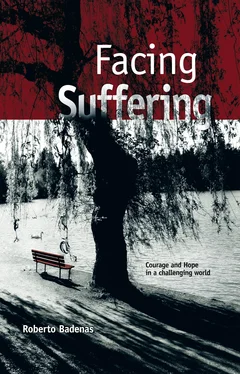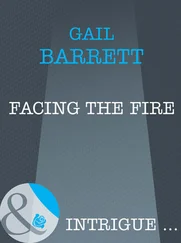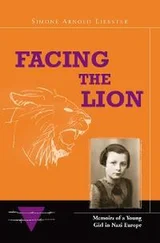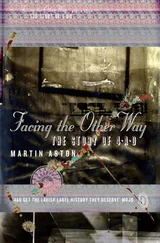8. Daniel Gottlieb, Letters to Sam: A Grandfather’s Lessons of Love, Loss and the Gifts of Life, Sterling, 2008, p. 134.
9. “Tell your heart that the fear of suffering is worse than the suffering itself ” (Paulo Coelho, The Alchemist, Harper Collins, 1993, p. 130).
10. See Nelson Hochberg, “An Explanation of the Quotation: Pain is inevitable, Suffering is Optional.” (http://www.nosuffering.com). “Even in the midst of the trials of life, we can choose joy.” (Tim Hansel, You Gotta Keep Dancing, Elgin [Illinois, USA]: David C. Cook, 1998, p. 83.
11. The Bible contains many words of encouragement so that we can face fear, such as: “Be strong and courageous! Do not be afraid; do not be discouraged! For the Lord your God will be with your wherever you go.” (Joshua 1:9; cf. Psalm 27:1; Matthew 6:45-52, etc.).
12. Simone Weil said, “compassion is the visible presence of God here below.”
13. Francisco Villaespesa, Spanish writer (Laura de Andarax, 1877 –– Madrid, 1936).
14. John Irving, Une prière pour Owen Meany, William Morrow, 1989, p. 50.
15. See the books by Ruth Carter Stapleton on inner healing: The Gift of Inner Healing, Waco (Texas, USA): Word Books, 1976, and The Experience of Inner Healing, New York: Bantam Books, 1977.
16. See Robert Alter, Life Does Not Get Any Better Than This, Liguori (Missouri, USA): Triumph Books, 1996, pp. 48-49.
17. José Luis Montes, El hombre que tuvo la fortuna de fracasar [The Man Who Had the Fortune to Fail], Barcelona: Plataforma Editorial, 2009.
18. Interview with José Luis Montes, “Nos programan para ser infelices” [They Program Us to be Unhappy], El País, 9/13/09, p. 40.
19. See William DeFoore, Anger: Deal with It, Heal with It, Stop It from Killing You (Health Communications, 1991).
20. See Robin S. Sharma, The Monk Who Sold His Ferrari: A Fable About Fulfilling Your Dreams and Reaching your Destiny. New York: Harper Colins, 1999.
21. Marcus Aurelius Antonius Augustus (121-180), was Roman Emperor from 161 until his death (180), and is considered to be one of the most important stoic philosophers.
22. The Bible says, “Do not let the sun go down while you are still angry.” (Ephesians 4:26).
23. For more about the subject, see Paul Tournier, Guilt and Grace, New York: Harper & Row, 1962.
24. Also see Paul Tournier The Healing of Persons, New York: Harper & Row, 1983.
25. Proverbs 17:22.
26. See, for example, the case of Kyle Maynard or Nick Vujicic (see p. 161 of this book).
27. Albert Schweitzer (1887-1965), was an Alsatian doctor, philosopher, musician, theologian, and protestant missionary. He received the Nobel Peace Prize 1952) for his life in service of the sick and disadvantaged. He spent most of his life, and died serving, in the hospital that he founded in Lambaréné, which is now in Gabon, Africa.
28. Dr. Hans Hugo Bruno Selye (1907-1982), Austro-Hungarian physiologist, Director of the Institute of Experimental Medicine and Surgery at the University of Montreal (Canada), is famous for his studies on stress and anxiety.
29. In particular, see Harold G. Koenig, David B. Larson and Michael E. McCullough, Handbook of Religion and Health, New York: Oxford University Press, 2001. This is a comprehensive book on the relationship between faith and health, resulting from the scientific analysis of over 1,700 different studies and research on the subject.
30. Fitzgerald Helen, The Mourning Handbook, New York: Simon and Schuster, 1994.
31. Barbara Wolf, Living With Pain, New York: Seabury, 1977.
32. The Apostle Paul, in hard circumstances, found encouragement by thinking of divine promises: “For I consider that the sufferings of this present time are not worthy to be compared with the glory which shall be revealed in us” (Romans 8:18). “Therefore we do not lose heart. Even though our outward man in perishing, yet the inward man is being renewed day by day. For our light affliction, which is but for a moment, is working for us a far more exceeding and eternal weight of glory, while we do not look at the things which are seen, but at the things which are not seen. For the things which are seen are temporary, but the things which are not seen are eternal” (2 Corinthians 4:16-18).
33. Mary Craig, Blessings, London: Hodder & Stoughton, 1979 (2012), p. 77.
34. From a spiritual perspective, Bridget Meehan, The Healing Power of Prayer, Ligouri: Ligouri Publications, 1988.
35. Schwartz et al., “Altruistic Social Interest Behaviors are associated with Better Mental Health,” Psychosomatic Medicine (American Psychosomatic Society) 65:778-785, 2003.
4
A Hard Why
to Accept
“No one knows himself until he has suffered.”
Alfred de Musset
The test results left no room for doubt: lung cancer. Sara, a friend of ours, young and very pretty, has never smoked and neither have her parents. She’s a vegetarian and lives as healthy a lifestyle as anyone could ask. The terrible diagnosis not only moved us to express our pain; we also wanted to understand its causes. We asked ourselves: “Why is this happening?” “Why to her?” “Why so young?” It is paradoxical that suffering, being one of our most familiar realities, turns out to also be one of the most incomprehensible. Even for science, pain is still an enigma.
Useful pain?
Trying to understand the cause of our ailments in order to cure them is the most logical thing in the world. Much of our suffering comes from trauma to the body: blows, wounds, infections. Our immediate reaction to them is to reject them. The feeling of injury caused by pain generates a sudden sympathetic reflex from our whole being, reacting to the injury, mobilizing our resources for the restoration of harmony. Various kinds of discomfort intervene to protect life. An intricate system of nerve endings sends out uncomfortable sensations, like alarm signals warning of danger (a burn, a sting, etc.), implementing the mechanisms responsible for avoiding greater harm. In that sense, pain first has a protective role, which is very positive. In a large number of cases, pain is the main reason why the wounded or sick individual decides to go to the doctor.
Healthy babies are born with a complex sensory system, perfectly equipped for detecting pain in its many forms. This system will protect them from countless problems throughout their life. Those who suffer from some form of congenital analgesia, i.e. the inability to feel pain, run more serious risks than those who are susceptible to suffering. A larynx that doesn’t have cough reflexes allows pneumonia to develop easily. Joints that don’t hurt (and that don’t require a change in position) run the risk of becoming dislocated. The victims of rare diseases that decrease their sensitivity to pain tend to die young due to wounds that never hurt. Many of the deformities affecting those with leprosy result from the fact that leprosy destroys their ability to perceive pain and their bodies become mutilated due to this lack of sensitivity.
In this basic preventative role, pain is not our enemy, but a faithful guardian that warns us of danger. But pain is a resource that we value very little. Our rebellious nature, prone to hedonism and convinced that technology should fix everything, perceives any discomfort, even the most benign, as an assault. If pain reliever X takes away the pain from the onset, so much the better. And we run the risk of being left without an alarm system.
Dr. Paul Brand advises: “First, listen to your pain. It is your own body talking to you. I, too, may take an aspirin to relieve a tension headache, but only after pausing to ask what brought on the nervous tension that provoked the headache. I have taken antacid for stomach pain, but not before considering what I might have eaten to give me such pain. Did I eat too much? Too fast? Pain is no invading enemy, but a loyal messenger dispatched by my own body to alert me to some danger.”1
Читать дальше












